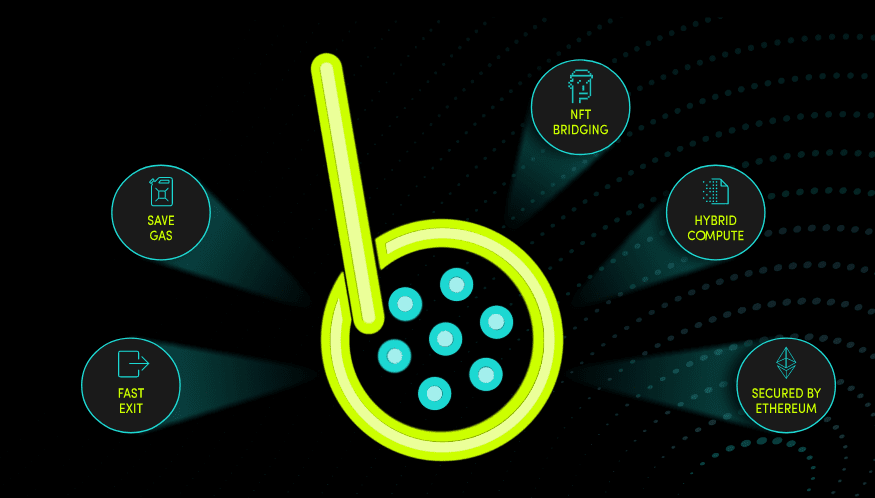As the crypto industry eagerly awaits the launch of ETH 2.0 to address its scalability issues, other layer-2 protocols are already trying to provide solutions for that, and hope to bring increased transaction speeds to the world’s number two blockchain. After the successful launch of its beta only last month, next-generation scaling solution Boba Network has announced the mainnet launch of its layer-2 optimistic rollup, according to a press release shared with Forkast.News.
The protocol will be launched at Messari Mainnet in New York City on Sept. 20.
Developed by OMG Foundation core-contributor Enya.ai and based on the open-sourced Optimism codebase, Boba hopes this development will reduce gas fees, improve throughput and expand the capabilities of decentralized finance (DeFi) and non-fungible token projects (NFTs).
“From the beginning, our mission has been to create and grow an inclusive, decentralized ecosystem for developers and end-users,” said Alan Chiu, founder and CEO of Enya.ai, in a statement. “Boba’s mainnet will allow Boba developers to deliver a faster, cheaper, and more delightful experience to the next billion users of Ethereum.”
As the Ethereum blockchain continues to grow — driven in part by increased demand for DeFi and NFTs — transaction speeds on the network have become a growing issue. Only capable of handling 13 transactions per second, and averaging 1.355 million transactions per day, the backlog of transactions has led to volatile and often incredibly high gas fees on the network.
The network’s recent London hardfork made some headway on these issues by implementing Ethereum Improvement Protocols such as EIP-1559, which sought to address fee volatility by “burning” tokens in the transaction process. But there is only so much these EIPs can accomplish in this area without the full transition to a proof-of-stake network and other changes ETH 2.0 will bring.
In an earlier interview with Forkast.News, Chiu said many of the permissionless, censorship-resistant applications that run on Ethereum are “revolutionary” but have meant the network has become a victim of its own success. “Because of [these applications’] popularity, Ethereum has become cost-prohibitive for a lot of mainstream users,” he said. “That prevents a lot of new users from even just trying out what it’s like to use these applications.”
A rollup is an approach to scaling solutions that perform transaction executions off the main Ethereum chain (layer-1) before recording data on the main chain. The off-chain transactions can also be executed in layer 2 chains before moving back to layer 1 to store proofs. By moving transactions off-chain, faster transactions and lower transaction fees can be achieved.
There are two separate types of rollups: the first is zero-knowledge, which runs computation off-chain and submits validity proof to the chain. The second is optimistic — the one Boba is using — which automatically assumes transactions are valid and only runs computation if a transaction is challenged.
“By implementing computations on layer 2, moving them off the main chain, we are freeing up the precious blocks on the main chain so that in aggregate we can — as an ecosystem — handle a lot more transactions,” Chiu told Forkast.News in that earlier interview. “So, without even waiting for ETH 2 to become broadly available, we’ll immediately start seeing lower transaction fees and many more transactions happening between the combination of layer 2 solutions and the current implementation of Ethereum.”
OMG Foundation will also be releasing its own governance token for the platform, $BOBA, which will be the basis for voting on the upcoming Boba decentralized autonomous organization (DAO). Already supported through leading Hong Kong-based crypto exchange FTX, $BOBA tokens will be airdropped to existing holders of $OMG tokens — the existing governance token for the OMG Foundation — who have bridged their $OMG tokens to the Boba Network by a specified date next month. $BOBA tokens already staked on the network will also receive a portion of transaction fees earned by the network through a community governed mechanism.
There have been several partnership announcements each week since Boba Network Beta launched last week, most recently with decentralized oracle Witnet, which was announced last week. Witnet provides smart contracts with secure data input.
“Without a reliable oracle, smart contracts are subject to hacks, monetary loss and other forms of corruption,” Chiu said. “A partnership with Witnet is a natural fit for Boba — their decentralized system is able to withstand potential vulnerabilities and consistently provide secure and trusted data for developers.”





